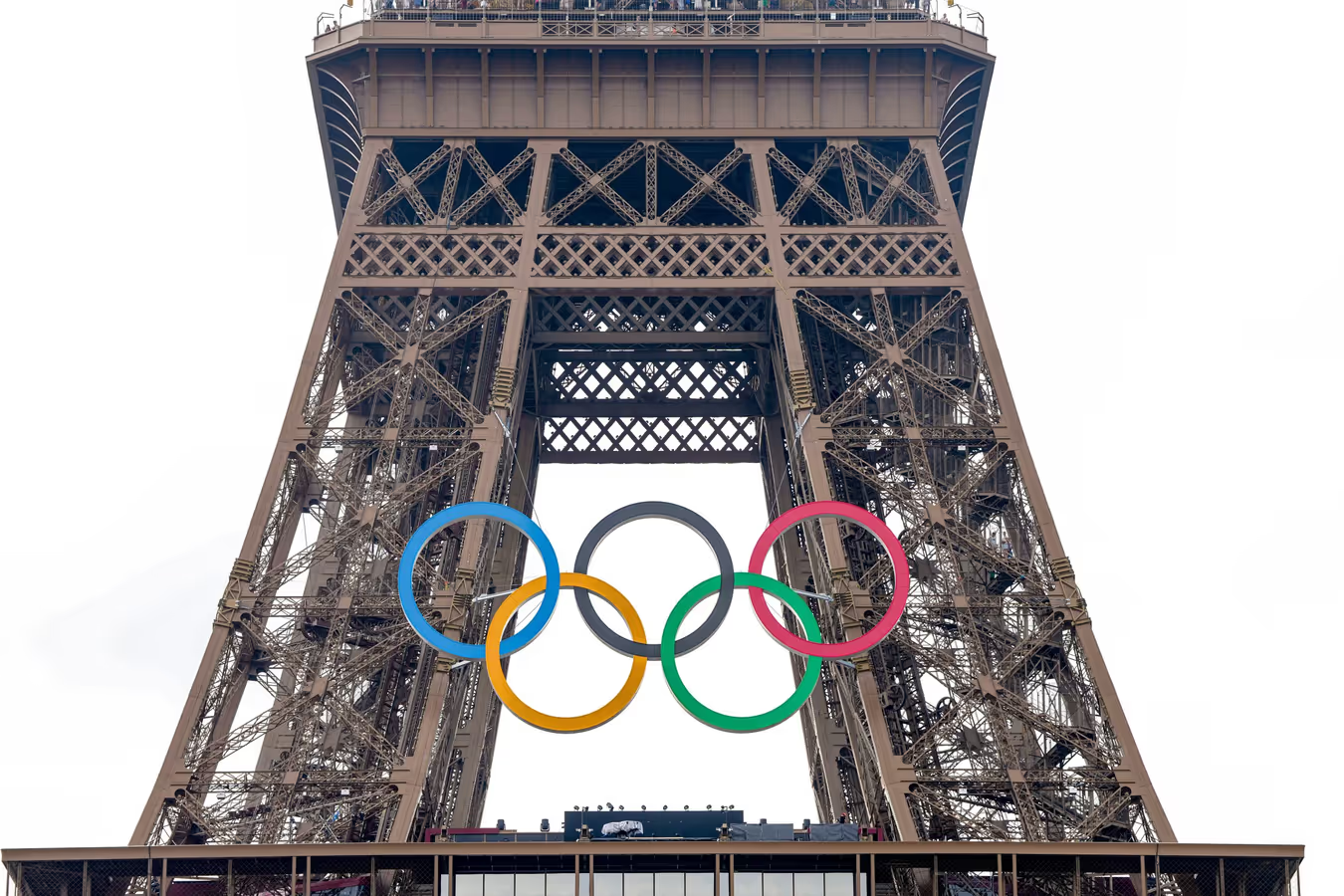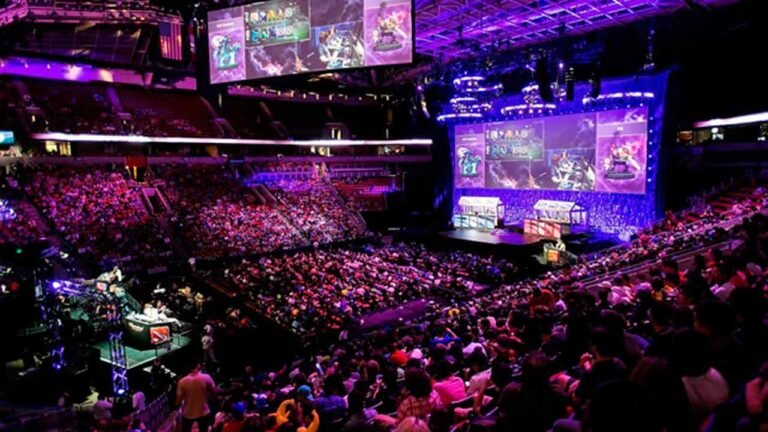
Introduction to the 2024 Olympic Games
The 2024 Olympic Games, officially known as the Games of the XXXIII Olympiad, are set to take place in Paris, France. Spanning from July 26 to August 11, 2024, these Olympics will mark the third time that the French capital has hosted this prestigious event, previously welcoming athletes in 1900 and 1924. The significance of the Olympics extends beyond mere competition; they serve as a global platform that showcases the pinnacle of athletic excellence and unites nations through sport.
As the world’s top athletes prepare to compete for gold medals, the upcoming Games present a unique opportunity for both seasoned competitors and emerging talent to demonstrate their prowess on an international stage. The anticipation surrounding the Olympics not only excites fans but also highlights the dedication and hard work that athletes invest in their respective sports. With a diverse array of disciplines, from traditional events such as athletics and swimming to newer additions like skateboarding and surfing, the Games will undoubtedly attract a wide audience keen to witness thrilling performances and memorable moments.
In addition to individual achievements, the Olympic Games foster camaraderie and a spirit of fair competition among nations. This aspect is evident as athletes from various backgrounds come together, celebrating not only their own accomplishments but also the unity and cultural exchange that sport facilitates. As we look forward to the 2024 Olympic Games in Paris, it is essential to recognize the historical significance and transformative power of the Olympics, as both a sporting event and a celebration of shared human experiences on this remarkable global stage.
Highlighting Top Athletes to Watch
The 2024 Olympic Games in Paris are set to feature a considered array of elite athletes, each determined to showcase their skills and strive for gold. In athletics, one notable contender is the sprinter Elaine Thompson-Herah, who has an impressive portfolio of Olympic and World Championship titles. Her remarkable speed and consistency make her a serious contender in the 100m and 200m events, and her performances leading to the games demonstrate that she remains in phenomenal form.
Meanwhile, swimmer Katie Ledecky stands out as one of the most dominant forces in the pool. With multiple Olympic gold medals to her name, Ledecky’s current performances suggest she is more than capable of defending her 800m and 1500m freestyle titles. Athletes in individual sports are not alone, as team sports also surface strong contenders. For instance, the USA Women’s Basketball team, anchored by veterans such as Sue Bird and Breanna Stewart, promises a potent blend of experience and talent, aiming for yet another gold medal as they seek to extend their historic dominance.
In gymnastics, Simone Biles remains a central figure to watch. After returning from a break that included dealing with mental health challenges, Biles has regained her excellent form, and her unique routines continue to captivate audiences and judges alike. With her extensive list of accomplishments and her ability to perform under pressure, the gymnastic events will see fierce competition with Biles vying for gold once again.
Lastly, in tennis, the prodigious talent of Carlos Alcaraz has drawn attention, particularly after his victory at prestigious events and consistent performances against the world’s best. Alcaraz is not just expected to contend for medals; his youthful exuberance brings an exciting edge to the competition. As the Olympic Games approach, these athletes among many others are gearing up to display their exceptional skills on the grandest of stages.
Emerging Talents and Underdogs
The 2024 Olympic Games in Paris is set to showcase a multitude of athletes, including several emerging talents and underdogs who possess the potential to challenge established competitors. Among these rising stars is a cohort of young athletes, each with unique narratives that contribute to the rich tapestry of Olympic competition. Their backgrounds often reflect dedication, resilience, and a commitment to their respective sports, making them worthy of attention.
One such talent is the sprinter from Jamaica, who burst onto the scene at the World Athletics U20 Championships. She not only demonstrated remarkable speed but also showcased her potential to compete at the highest level. With her recent accomplishments, including a podium finish at a major international event, she is poised to make a significant impact on the Olympic stage. The unpredictability of her trajectory adds an element of excitement, reminding fans that the Olympics often birth new legends.
Another standout is the American gymnast who has consistently performed well in collegiate competitions, drawing attention with her distinctive routines and artistic flair. Despite being relatively unknown in global competitions, her recent performances in national championships indicate that she possesses the skills and resilience required to excel at the Olympics. As many recall past underdog stories that led to unforgettable victories, this gymnast could very well join their ranks in Paris.
In a sport like boxing, an up-and-coming welterweight from Nigeria has surprised many with his relentless work ethic and outstanding technical skills. He recently earned a gold medal at a continental championship, illustrating his capacity to compete against more seasoned adversaries. The narrative of perseverance and grit that defines this athlete encapsulates the essence of the Olympic spirit, wherein underdogs often rise to the occasion in spectacular fashion, captivating spectators across the globe.
Factors Influencing Performance
The performance of athletes at the 2024 Olympic Games is shaped by a myriad of factors that extend beyond mere physical abilities. One of the most critical elements is the training regimen each athlete employs in preparation for the competition. A well-structured training program, tailored to the individual’s strengths and areas for improvement, can significantly augment performance. Athletes often engage in periodization, a strategy that cycles through different phases of training to optimize peak performance during the Olympics. This scientific approach enables athletes to develop their skills while managing fatigue and enhancing recovery.
Mental resilience also plays a pivotal role in determining how well athletes can perform under pressure. The psychological demands of competing on such a significant stage can be intense. Athletes must often navigate the weight of expectations from fans, sponsors, and national pride, all of which can contribute to performance anxiety. Techniques such as visualization and mindfulness training are increasingly being integrated into training programs to help athletes bolster their focus and maintain composure during high-stakes scenarios.
Injury risk is another factor that cannot be overlooked. The nature of Olympic competition often pushes athletes to their physical limits, increasing the likelihood of injuries. Proper conditioning, nutrition, and recovery protocols are essential in minimizing these risks, as a single injury can derail an athlete’s ambitions for gold. Additionally, the unique environment of the Olympics—often characterized by pressure, unfamiliar settings, and varying competition levels—can further affect performance. Athletes must adapt quickly to these circumstances to optimize their potential.
In conclusion, the complex interplay of training regimens, mental resilience, injury risk, and the competitive environment forms a foundation that will influence the outcomes of the 2024 Olympic Games. Understanding these factors will provide valuable insight into the achievements of athletes and their quests for gold.




